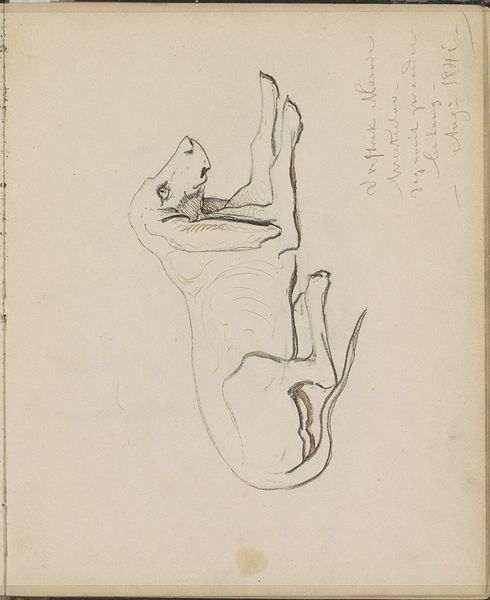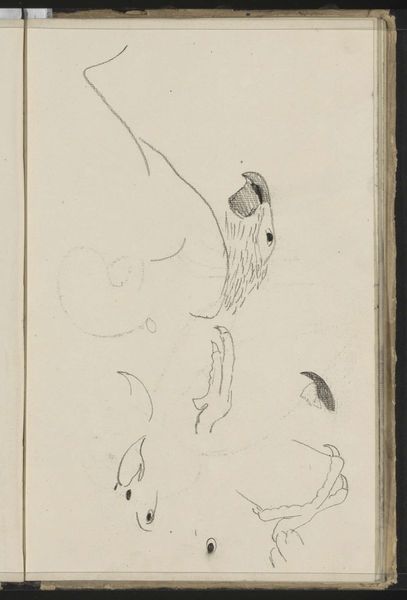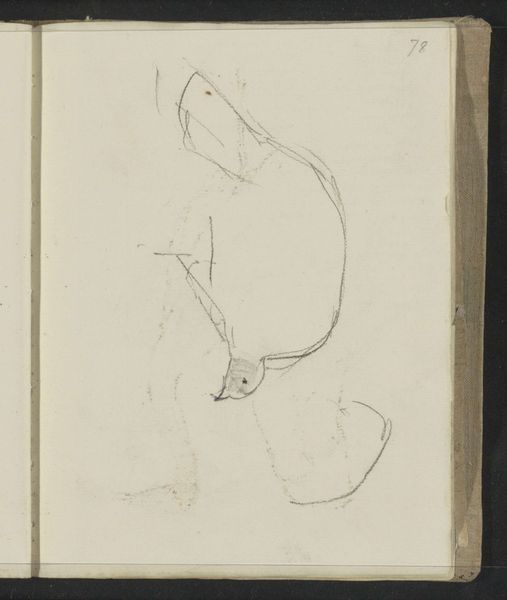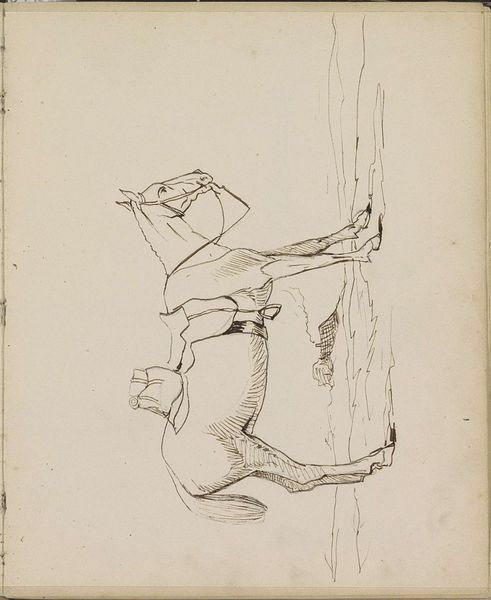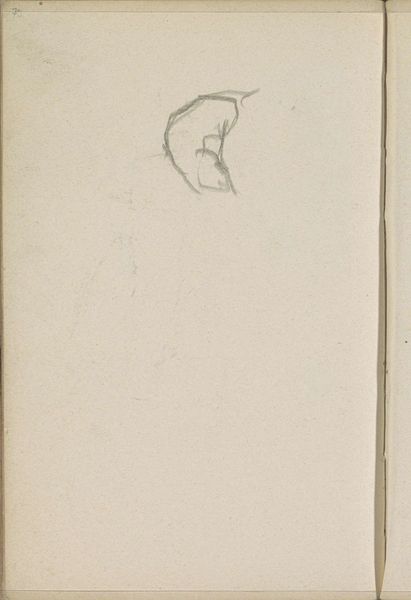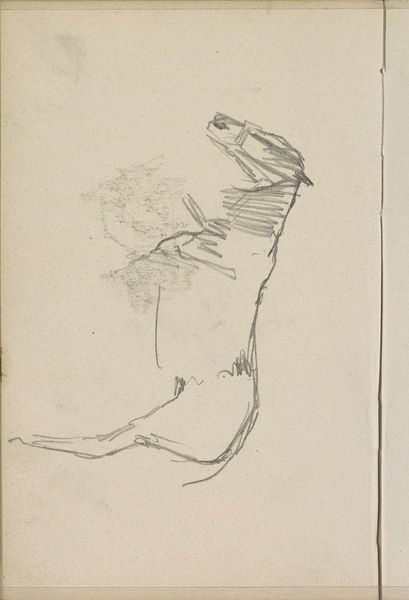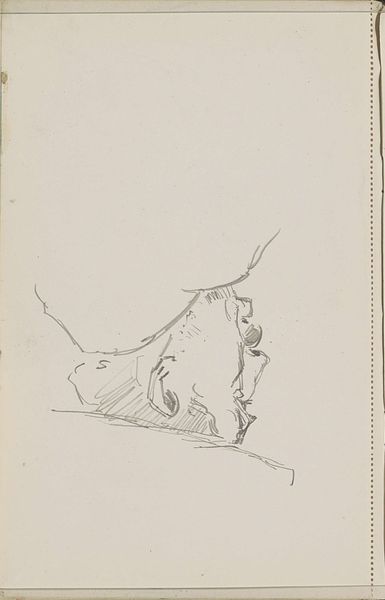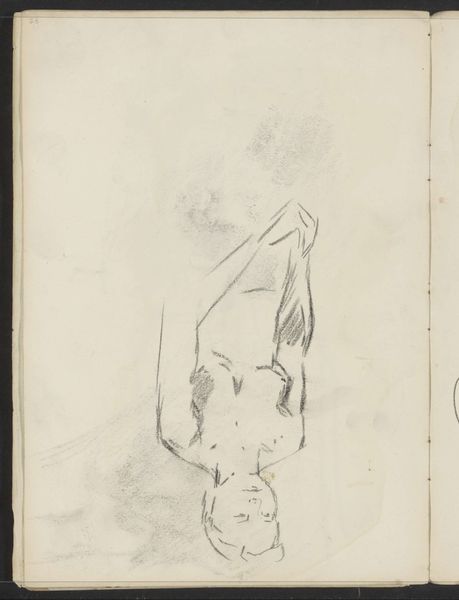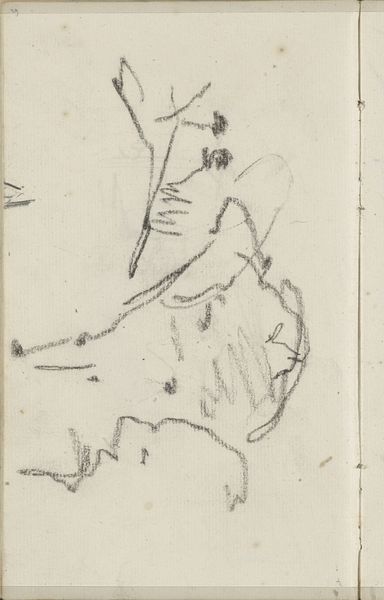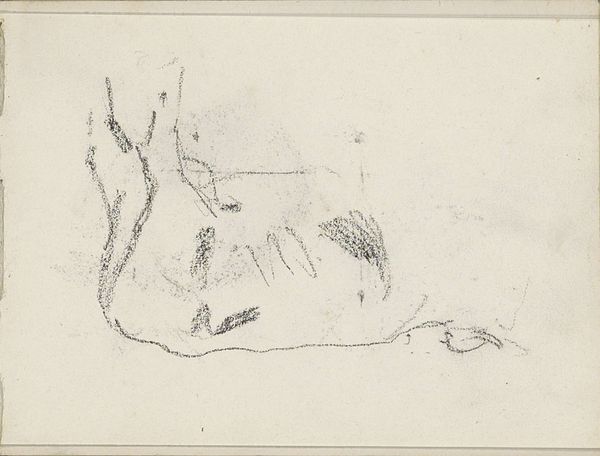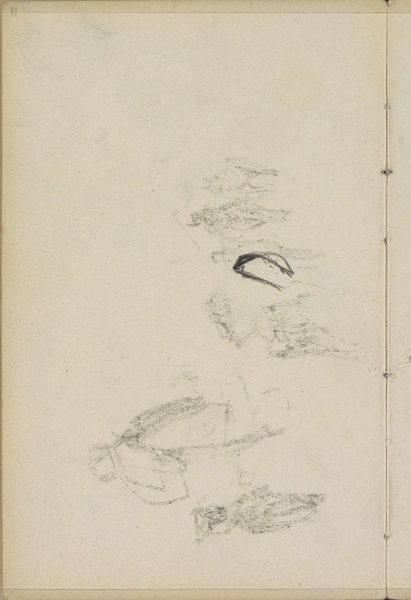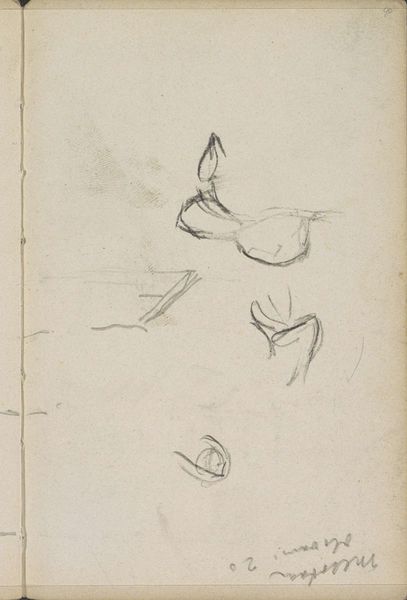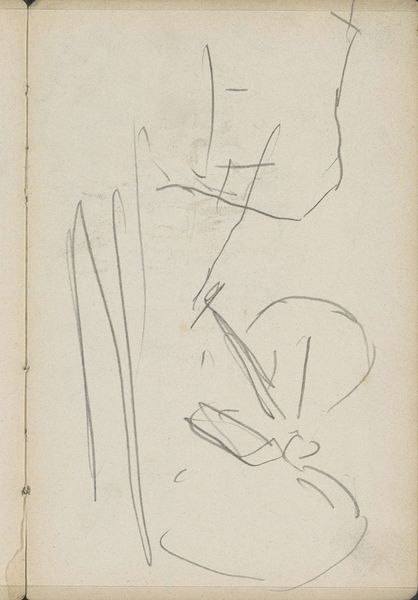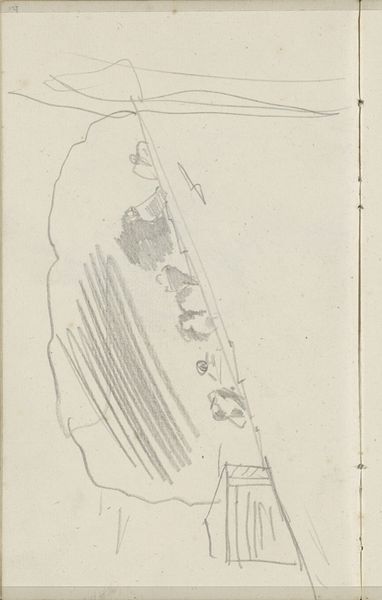
drawing, pencil
#
portrait
#
drawing
#
amateur sketch
#
toned paper
#
light pencil work
#
ink drawing
#
animal
#
pencil sketch
#
dog
#
incomplete sketchy
#
personal sketchbook
#
ink drawing experimentation
#
pen-ink sketch
#
pencil
#
sketchbook drawing
#
realism
Copyright: Rijks Museum: Open Domain
Editor: We’re looking at “Liggende hond,” or “Lying Dog,” a pencil and ink drawing from 1841 by Johannes Tavenraat. There's something very informal and immediate about the lines. How do you interpret this sketch, focusing on the artistic qualities themselves? Curator: Focusing purely on the internal relationships of the artwork, one immediately notices the contrast between the delicate pencil work defining the form of the dog and the more assertive ink lines emphasizing contour and shadow. Notice how the composition leads the eye to circle continuously around the animal. How would you describe the effects achieved through this approach? Editor: Well, the varying line weights and the dog's pose give a sense of three-dimensionality despite the simplicity. It’s economical, yet the essence of the subject comes through. The dynamism in the posture is so captivating, even if the composition might feel… slightly incomplete. Curator: Indeed. Observe how the artist strategically employs negative space. The background, a toned paper, becomes a compositional element, enhancing the dog's form without adding excessive detail. Ask yourself, how does the interplay of light and shadow, facilitated by the media used, affect our understanding of form here? Editor: The limited shading and open lines certainly suggest movement and an ephemeral quality. Was this possibly done as a study for a painting, or purely for artistic expression? Curator: One might surmise either. Nevertheless, its value lies intrinsically within the structural balance, rhythmic lines and textural nuances that contribute to the artwork’s overall aesthetic impact. Consider how each formal decision made contributes to our understanding and appreciation of the piece, rather than searching for any other meaning. Editor: I see it now – by stripping away context and focusing on the elements, the beauty of the draftsmanship is highlighted. Curator: Precisely! By attending to these details, one cultivates a greater understanding of Tavenraat's technique. We moved toward a richer understanding, I'd say!
Comments
No comments
Be the first to comment and join the conversation on the ultimate creative platform.
